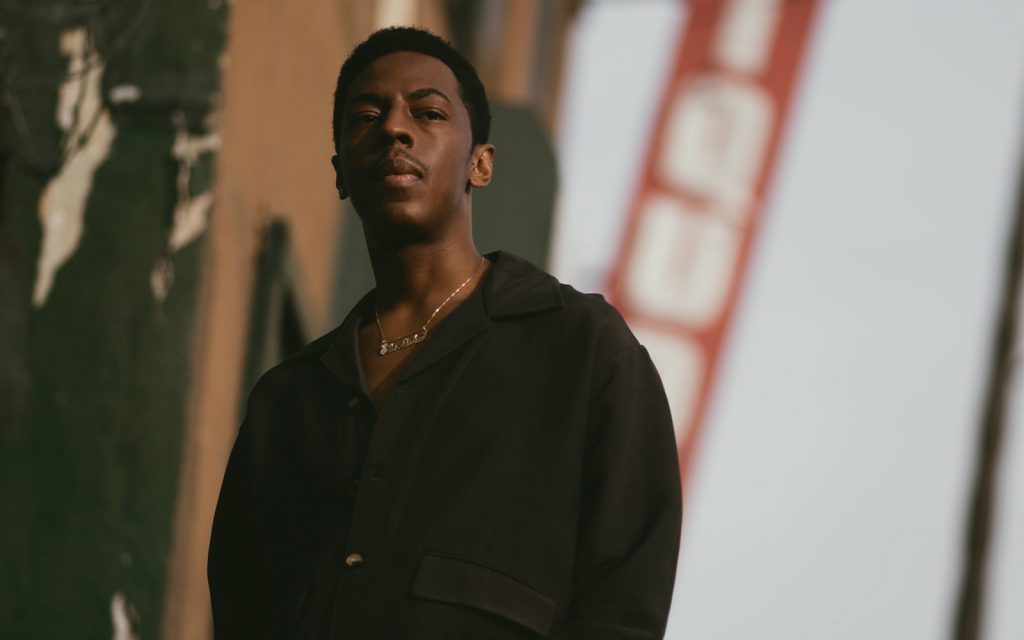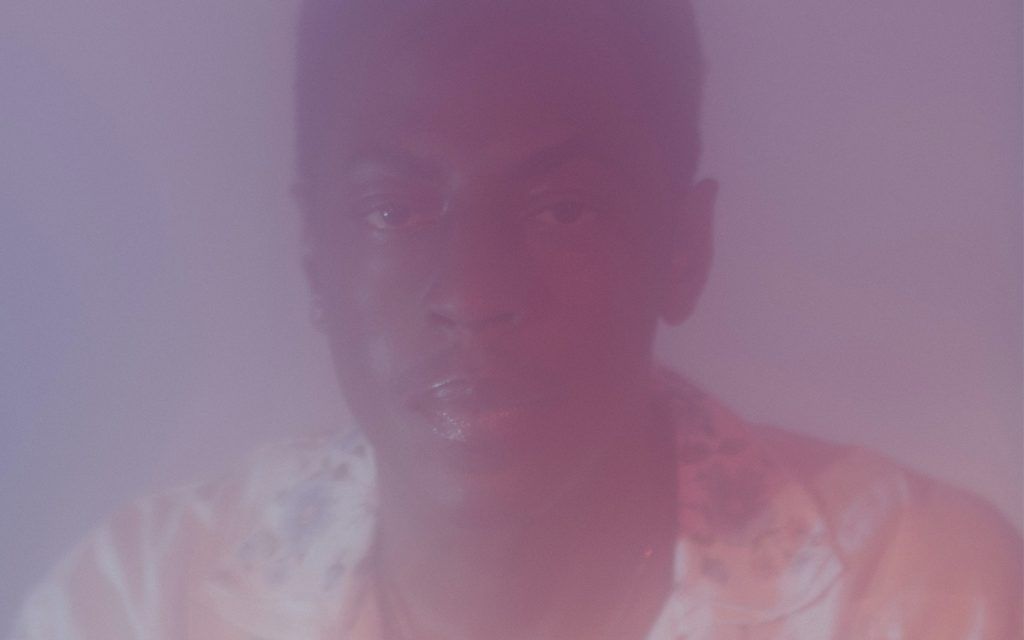Interview: Recording Artist Naeem
Formerly known as Spank Rock, Naeem Juwan sees his newest record as an opportunity to reflect and grow

Baltimore-born Naeem Juwan (who began as part of the duo Spank Rock, then retained the name Spank Rock as a solo artist, and now records as Naeem) never intended to shed his initial moniker. Spank Rock albums released in 2006 and 2011 and EPs in 2007, 2012, and 2014 established a specific style: raucous, club-influenced party rap. But, Naeem grew, and his interests shifted. Public perception, however, and even how peers received him, remained the same. He’d become pinned to a sound he was eager to evolve.
With his newest album Startisha (out on 37d03d), his first in nine years, he debuts under his own name. There, Naeem addresses personal subject matters ill-received under previous aliases. “I didn’t start writing the album knowing I was going to put it out as Naeem,” he tells us. “To me, it’s just another Spank Rock record. I never felt like I outgrew Spank Rock, and that was a very clear representation of myself, but, unfortunately, it didn’t seem like press and the audience viewed it the same way. I think they looked at it as something very specific, and wanted something very specific from it. Any time I became more creative or presented something that wasn’t expected, I think it made things more difficult for me to get the music out to the people.”

Around Baltimore and its clubs, Naeem found a tight-knit collective of like-minded, albeit fringe, individuals who he relied on for features, production, and the ilk. “The biggest distinction [between this record and Spank Rock ones] is who I made this album with,” he says. “And that’s what ultimately lead me to deciding to put it out as Naeem—just realizing that a lot of the people who were influencing Spank Rock’s music, a lot of my close friends, weren’t collaborating on music anymore. Once the album was kind of close to being done, I looked up and was like, ‘Whoa, this is a whole new crew.'”
Quintessential Spank Rock releases featured contributions from Santigold, Boys Noize, Benny Blanco, and lifelong friend Amanda Blank. Blank remains on Startisha, on the high-speed, sex-positive single “Woo Woo Woo,” but artists like Bon Iver‘s Justin Vernon, Francis and the Lights‘ Francis Farewell Starlite, legendary singer/songwriter Swamp Dogg, and rapper Velvet Negroni do too.
“The process felt closer to the first Spank Rock album,” Naeem says, despite the new cast of collaborators. “I wasn’t looking for a bunch of different producers and I wasn’t trying to find who the hottest up and coming whatever was. My two friends, these two kids in Philly, Sam Green and Grave Goods, if I put all my time and attention into them, then this record will appear. It’s just spending time.” Recorded partly in Philadelphia, Minneapolis, New York, and Kansas City, Naeem intentionally distanced himself from Los Angeles and the people and producers there—despite residing there now. “It’s a Philly album at heart,” he tells us. “I spent so much time just walking through South Philly.” Naeem wrote the bulk of the album’s songs there, but ventured to Minneapolis to work with Vernon and Kansas City to write “Let Us Rave” and “Simulation.”

“That was weird,” he recalls. “What the fuck am I doing in Kansas City, you know? How did I even get here? It was just eating BBQ and being in this boring American town. But it played a big part in [the album] because it makes you feel like a regular person. It makes you really begin to understand what life is like for real, instead of just being wrapped up in this industry world of New York and LA, which can become really uninspiring for me really quickly.”
Naeem’s collaborators (and their respective locales) surface on the album without disrupting its cohesiveness or its sound. Startisha proves more synth-heavy, oftentimes more industrial, and both slower and more expansive than previous albums. He also worked within self-prescribed prompts.

“I set some rules for myself,” he says. “One was to write a love song, one was to write from real-life experiences, things I remember, one was to confront myself. It’s a lot of nostalgia—I hate nostalgia—but a lot of the songwriting for this album was me thinking about the past, thinking about growing up in Baltimore, thinking about being a kid.”
The album’s title track delivers earnest storytelling. “‘Startisha’ is specifically about a girl I grew up with in my neighborhood. [She’s] a friend I haven’t spoken to in forever but I thought about being 13 years old and how that’s a really long time from now.” A somber ode to friends both lost and newly found, the track grapples with the complexity of memory. “Startisha / You are far too young for you to move this way / Sometimes when I have time / I think of you and I wonder / Do you still move this way / Are you still moving / Some friends no longer move at all.”
“Stone Harbor” answers Naeem’s love-song prompt. The euphoric, percussion-heavy track is “a simple love song to my boyfriend, written in and named after the shore town he and his family spend their summers.” It’s celebratory, and indicative of Naeem’s inclination to convey real-life experiences—love included.
On “Tiger Song,” however, he dips further into memories of growing up in Baltimore, the hyper-masculine expectations upheld in both the area and era, and the death of his older brother. “‘Tiger Song’ is about me dealing with Black masculinity and all of the hard times I had not being a ‘jock’—you know the average punk or skater story. Like you’re not the jock, the quarterback or whatever—and thinking about how you can still hold on to those things even though they were such a long time ago,” he tells us.

With releases dating back to 2004, and musical training predating those, Naeem has a lengthy history in the industry. But, the past nine years have provided him with time and space to reflect and to consider who he is apart from his art. “I was trying to get a better understanding of who I am as an adult,” he says. “A lot of things in my life made me feel detached from myself. Mostly just being a musician; that shit is weird, constantly thinking of yourself as a formal entity or a commodity. That’s fucking weird, and I just wanted to take the time to think about myself and all of the things I’ve been through. I wanted [Startisha] to feel like making music for the first time, making an album for the first time—just me removing expectations, removing ego, and focusing on creativity.”
Images by Shane McCauley, courtesy of Pitch Perfect PR












